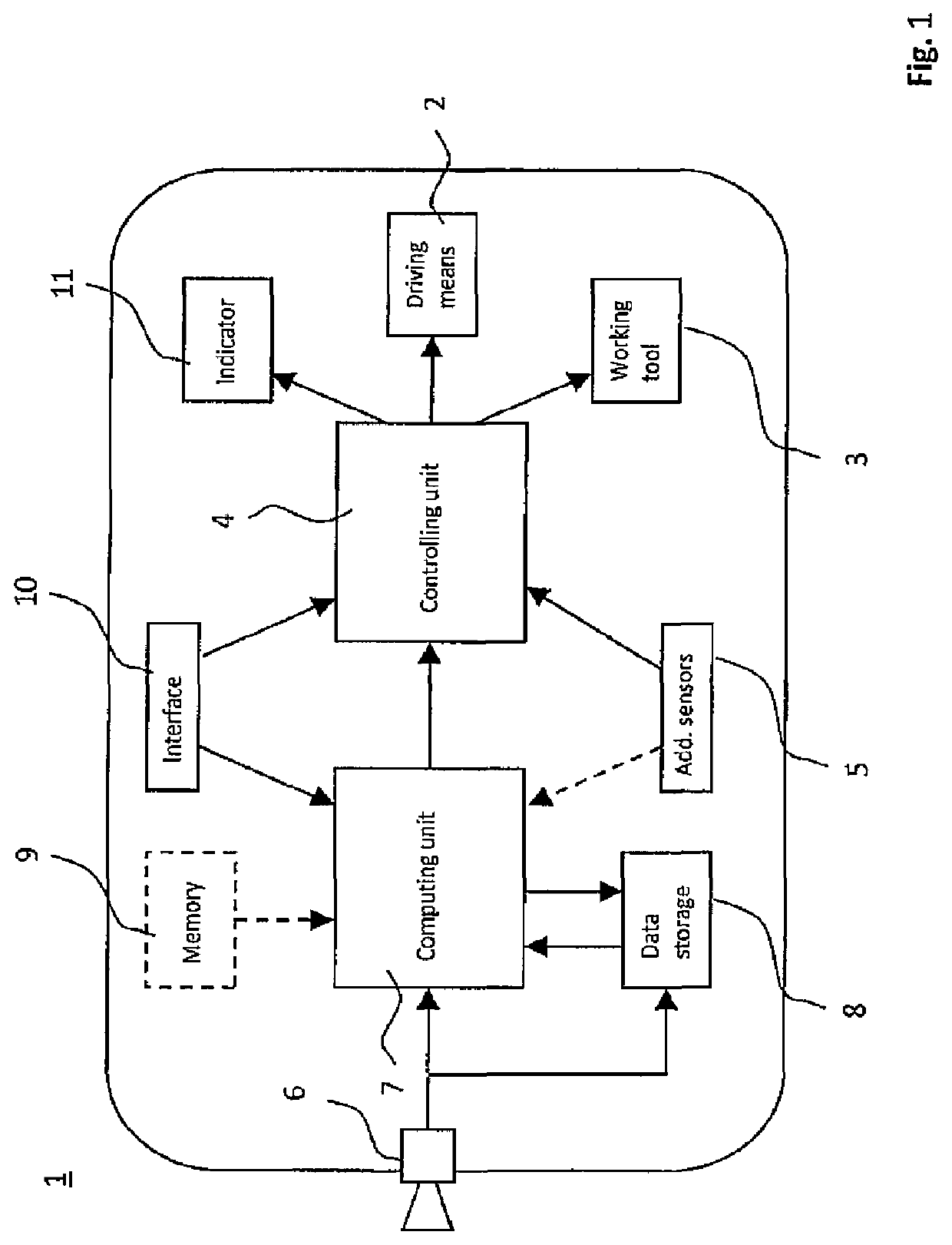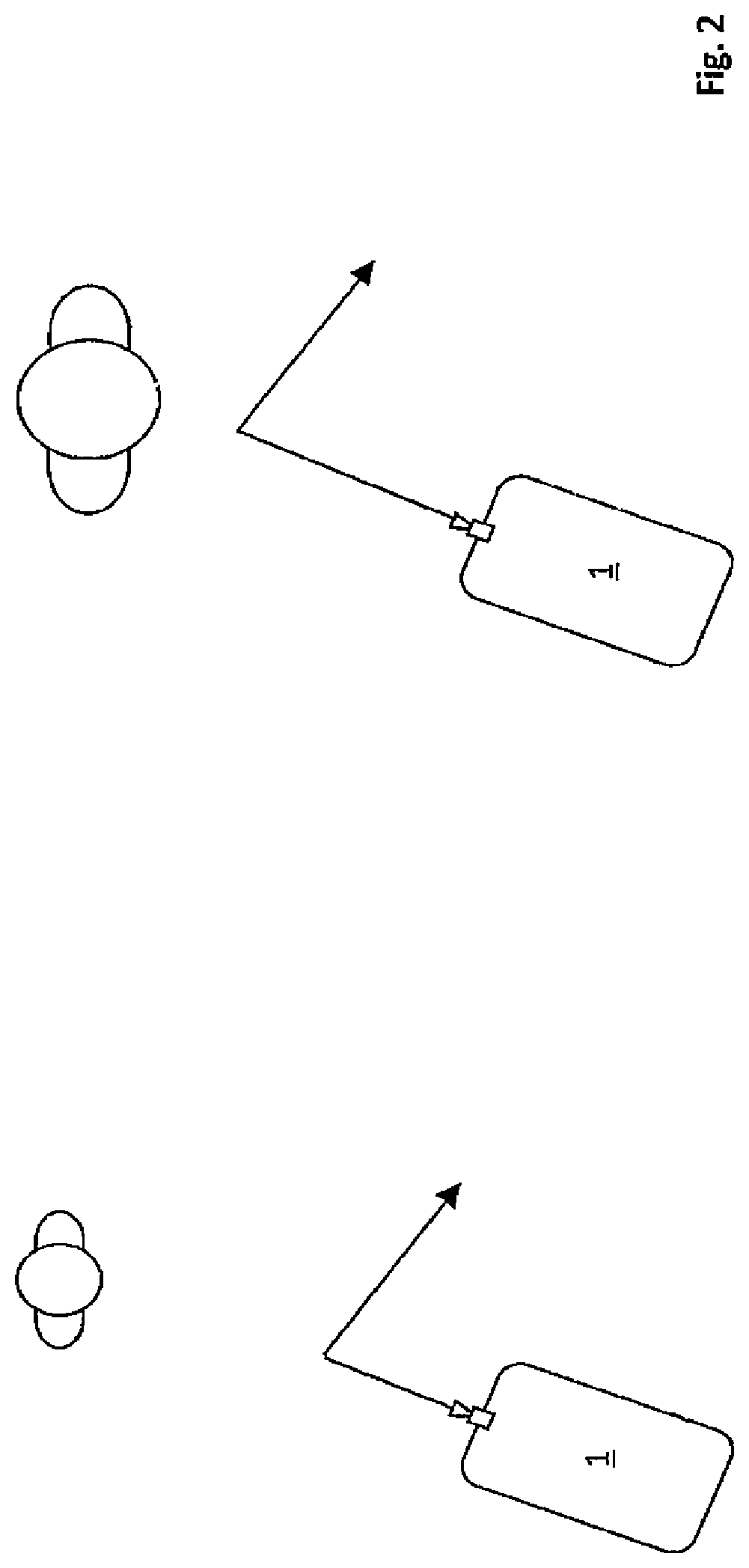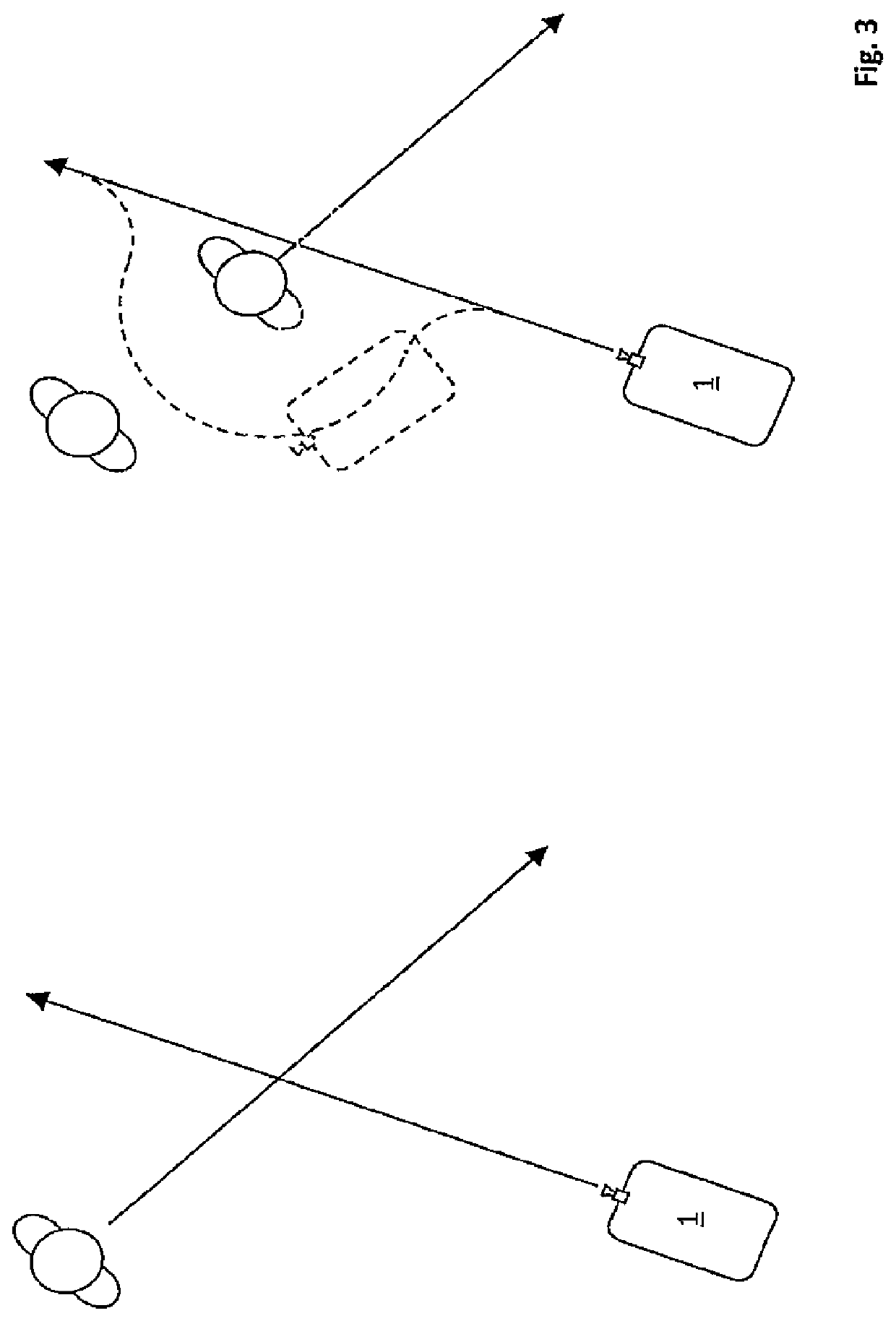Robotic gardening device and method for controlling the same
a robot and gardening technology, applied in the direction of process and machine control, image enhancement, instruments, etc., can solve the problem that one cannot rely on human safety, and achieve the effect of very precise object detection
- Summary
- Abstract
- Description
- Claims
- Application Information
AI Technical Summary
Benefits of technology
Problems solved by technology
Method used
Image
Examples
Embodiment Construction
[0022]In FIG. 1 a schematic of an autonomous lawn mower 1 as one example for a robotic gardening device is shown. The autonomous lawn mower 1 in a known manner comprises a driving means 2 and a working tool 3. The driving means 2 comprises a drive motor that is mechanically connected to drive wheels in order to propel the vehicle. It is to be noted that further parts of the entire driving mechanism that are well known in the art are not shown in the schematic. This is for example an energy storage like an accumulator or the like.
[0023]The working tool 3 comprises a further drive motor for driving blades on the lower side of the autonomous lawn mower 1 for cutting grass. Working tool 3 and driving means 2 both are controlled by a controlling unit 4 which is for example a data processing unit like a controller that supplies the driving means 2 and the working tool 3 with respective drive signals. Working tool 3 is controlled for activating a deactivating rotation of the blades whereas...
PUM
 Login to View More
Login to View More Abstract
Description
Claims
Application Information
 Login to View More
Login to View More - R&D
- Intellectual Property
- Life Sciences
- Materials
- Tech Scout
- Unparalleled Data Quality
- Higher Quality Content
- 60% Fewer Hallucinations
Browse by: Latest US Patents, China's latest patents, Technical Efficacy Thesaurus, Application Domain, Technology Topic, Popular Technical Reports.
© 2025 PatSnap. All rights reserved.Legal|Privacy policy|Modern Slavery Act Transparency Statement|Sitemap|About US| Contact US: help@patsnap.com



